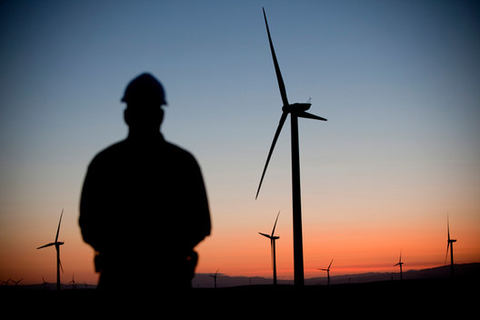French energy major EDF has pledged to commence an “unprecedented acceleration” in renewable energy deployment having witnessed its UK nuclear revenues collapse in 2017.
This morning the firm published its annual results for 2017, announcing a 16% slide in core earnings before interest, tax, depreciation and amortisation (EBITDA) to €13.74 billion.
Starkest amongst EDF’s results is perhaps its performance in the UK. Earnings in the country fell by exactly one-third in organic terms, down to what EDF said was the “significant impact” of lower realised prices for its nuclear output.
While nuclear generation in the UK (63.9TWh) was only slightly down, a 12% slide in realised prices saw EDF’S UK earnings fall by almost £700 million.
Those results are unlikely to be well received by critics of EDF’s under-construction Hinkley Point C project, for which the government has entered into a 35-year Contracts for Difference at a strike price of £92.50/MWh. Including inflation, the current strike price for Hinkley Point C stands at £97.14/MWh.
But while nuclear might have encountered trouble in 2017, the same cannot be said for the group’s renewables outfit EDF Énergies Nouvelles. That division’s supply-based EBITDA climbed 8.5% to €741 million and Jean-Bernard Lévy, chairman and CEO at EDF, said the firm was beginning an “unprecedented acceleration in renewable energies”.
A cornerstone of that acceleration is EDF’s solar plan which will see the development of 30GW of solar PV in France between 2020 and 2035.
Similar to the UK, France is at a crucial juncture in its power generation. As many as 17 of its nuclear reactors are could switch off by 2025 and leader Emmanuel Macron has pledged to phase out coal-fired plants by 2021.
Late last year France announced plans to increase the solar capacity it tenders for annually from 1.45GW to 2.45GW as it looks to significantly increase its renewables stock.





